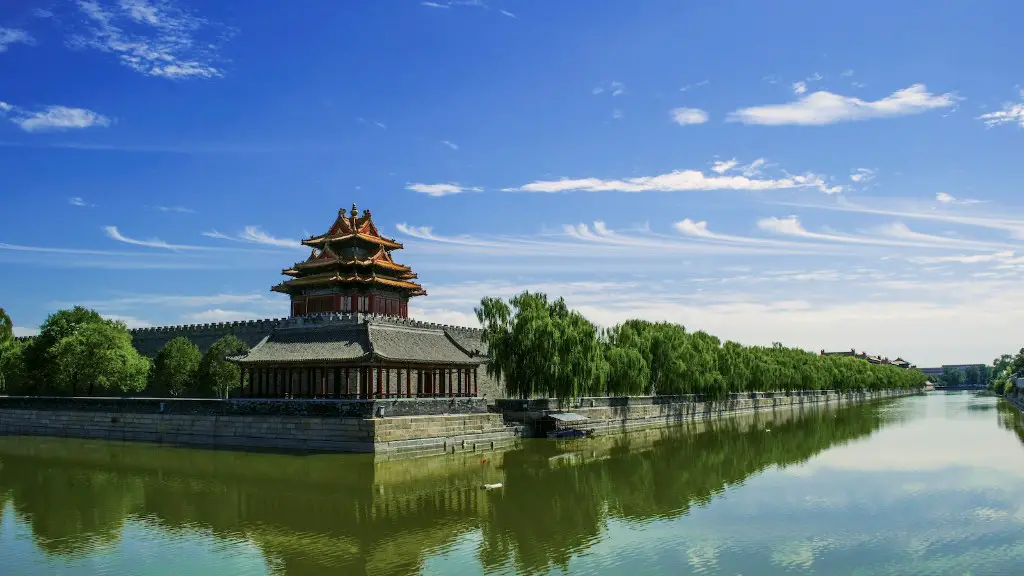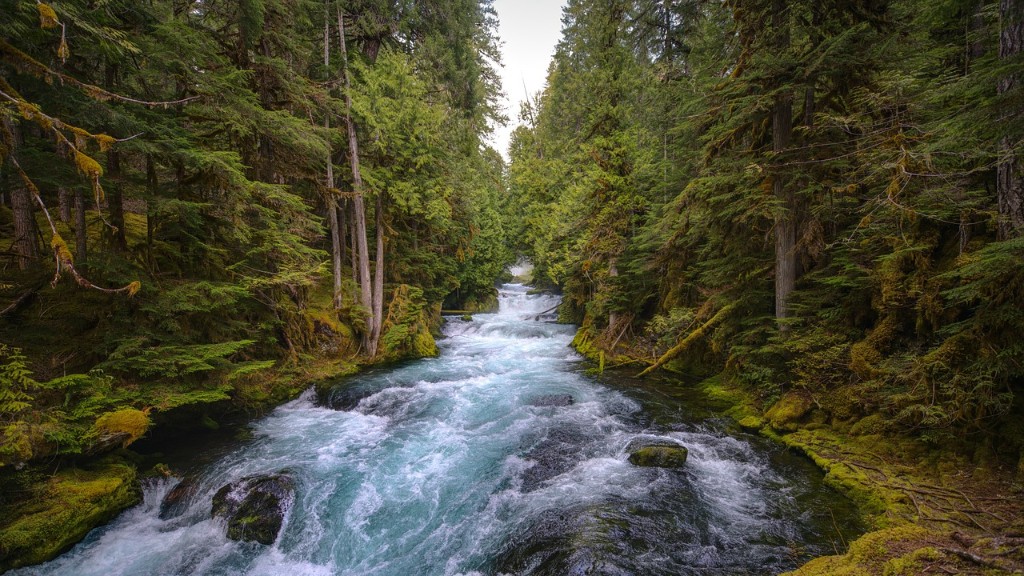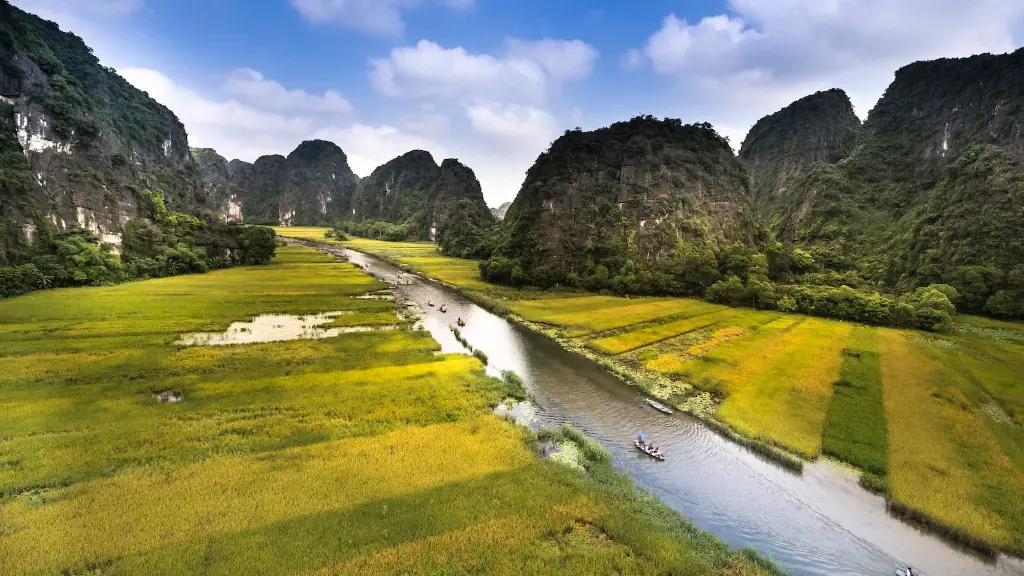The Nile River is an ancient river originating in East Africa and flowing into the Mediterranean sea in Egypt. It is the longest river in the world, and it has been an important source of sustenance and transportation for many countries over the centuries. Ancient Egypt was no exception. In fact, the Nile was essential to the development and maintenance of one of the oldest and most advanced civilizations in human history.
The Nile is a major source of fresh water, and it was the only reliable source of water in the ancient Egyptian world. It served as a source of irrigation and sustenance, providing enough water not only to feed and sustain the people, but also to nourish the crops they cultivated. This provided ancient Egyptians with a steady and reliable source of food. In addition, the Nile served as a vital route of transportation, providing a way to navigate the often difficult terrain.
But the importance of the Nile goes beyond just its physical benefits. To the ancient Egyptians, the Nile carried a tremendous amount of symbolic and spiritual significance. It was believed by the ancient Egyptians that the gods sent their blessings through the river, and thus it held a special place in their society and culture. The river was seen as the driving force behind the abundance of the land and was honored and celebrated as such.
The Nile provided a source of protection to the ancient Egyptians as well. Its waters served as a natural barrier against invasions and other threats. This enabled the ancient Egyptians to remain relatively safe and secure, allowing them to continue their development into one of the most sophisticated civilizations the world had ever seen.
The importance of the Nile River to the ancient Egyptians is hard to overstate. Without it, one of the greatest civilizations in history would not have been able to thrive in the way we know it did. The Nile provided a consistent and reliable source of sustenance, transport, protection, and spiritualism, all of which were integral to the development and prosperity of Egypt.
Economic Benefits
The economic benefits that the Nile River provided the ancient Egyptians were far-reaching. Not only did it provide a reliable source of agricultural irrigation and fresh water, but it also served as a major trading and transportation route of goods, services, and ideas. The powerful flow of the river allowed ships and barges to move swiftly and easily throughout the region, connecting Egypt to the rest of the known world.
Because of its importance as a trading route, the Nile attracted numerous merchants and traders, leading to an influx of goods, services, and ideas into Egypt. This had the effect of advancing their civilization’s economy by providing them greater access to a larger variety of resources. The wealth that resulted from the Nile’s trade was enough to fund the advances in Egyptian society and culture that we recognize today.
The Nile was also crucial to the development of an organized system of taxation. By bringing in a large amount of wealth from trade and barges, the Ancient Egyptians were able to build a complex bureaucracy of collecting, redistributing and preserving taxes. This enabled them to increase their wealth and stability, which in turn allowed them to continue to progress and expand their society.
The Nile gave the ancient Egyptians the ability to not just survive, but thrive. Its consistent flow of goods, services, and ideas allowed their civilization to flourish and create the advanced society we know today.
Religious Significance
When discussing the importance of the Nile to ancient Egyptians, one cannot overlook its religious significance. This mighty river was seen as a sign from the gods, believed to be the source of the land’s bounty and fecundity. As such, it held a special place in their religion and culture.
The Nile was believed to be the physical embodiment of the great mystery of creation and was frequently invoked in prayers and offerings. The ancient Egyptians even built shrines and temples along the riverbanks, believing that the gods lived within it. Thus, the Nile took on a sacred character in the eyes of the Egyptians, who recognized its power and importance in a way that is still revered and respected today.
Moreover, the Nile was also believed to be the source of some of the most powerful gods of the ancient Egyptian pantheon. This included Isis, Osiris, and Horus, who were often referred to as “the children of the Nile”. Thus, the river carried a far more significant and powerful spiritual meaning for the ancient Egyptians than the mere physical benefits.
The Nile’s religious and spiritual importance was fundamental to the development of Ancient Egyptian civilization. It provided a much-needed connection to the gods which enabled them to progress, prosper, and exist in such a way that we recognize and admire today.
Political Impact
The Nile was also of great political importance to the ancient Egyptians. It was the first river to ever be put under unified control and served as the effective border between Egypt and its neighbors. This enabled them to protect their territory and defend against invasions, providing them with a secure political environment which allowed them to remain in power for so many centuries.
The division of the Nile’s waters also served as a major source of wealth. Because of this, the ancient Egyptians were able to fund and build some of their most impressive monuments, such as the Great Pyramid of Giza. This was all made possible by the collection of taxes on the goods exchanged on the river, which enabled them to support the construction of such monumental feats.
The political importance of the Nile extended to its neighbouring countries as well. Its waters provided a way for nations to communicate and cooperate, creating a political landscape that encouraged collaboration rather than conflict. This enabled the region to remain relatively stable and prosperous, lasting for centuries and eventually developing into the empires and kingdoms we know today.
The Nile stood as the backbone of political power in ancient Egypt and in its neighbouring countries. Its power and influence provided a safe and secure environment, enabling the development and prosperity of one of the greatest civilizations the world had ever seen.
Environmental Remains
The Nile has had an immense impact on the environment of the region, resulting in a wide array of flora and fauna. Not only did the river provide sustenance for the ancient Egyptians, but it also created some of the most diverse ecosystems in the world. This includes a host of unique species of animals and plants that can only be found in the area, which have been an integral part of the region’s history and culture.
Today, these ecosystems and species still remain, providing a lasting reminder of the importance of the Nile to the ancient Egyptians. These sites have come to be known as “Nile Heritage Sites” and are regularly visited by tourists and researchers alike and are regarded as some of the most important and interesting sites in the world.
The Nile’s impact is undeniable and its importance is still acknowledged and appreciated to this day. Whether one is interested in the region’s history, culture, or its environment, they can’t help but be in awe of the immense power and influence of this ancient river.
Conclusion in the Present Day
The Nile River is still a major source of sustenance and transportation for millions of people today. It serves as a vital link between countries, enabling them to share goods, services, and ideas. It is also one of the longest rivers in the world and it continues to provide the same benefits to the communities living in its vicinity that it did to the ancient Egyptians.
Its importance to the ancient Egyptians is impossible to overestimate, for it provided them with the sustenance, wealth, protection, and spiritualism that enabled them to become one of the greatest civilizations the world had ever seen. Its economic, political, religious and environmental impact still reverberates today, making it an integral part of regional history and culture.
The Nile River is a powerful reminder of the immense influence a single body of water can have on civilization and should be respected and celebrated as such.





